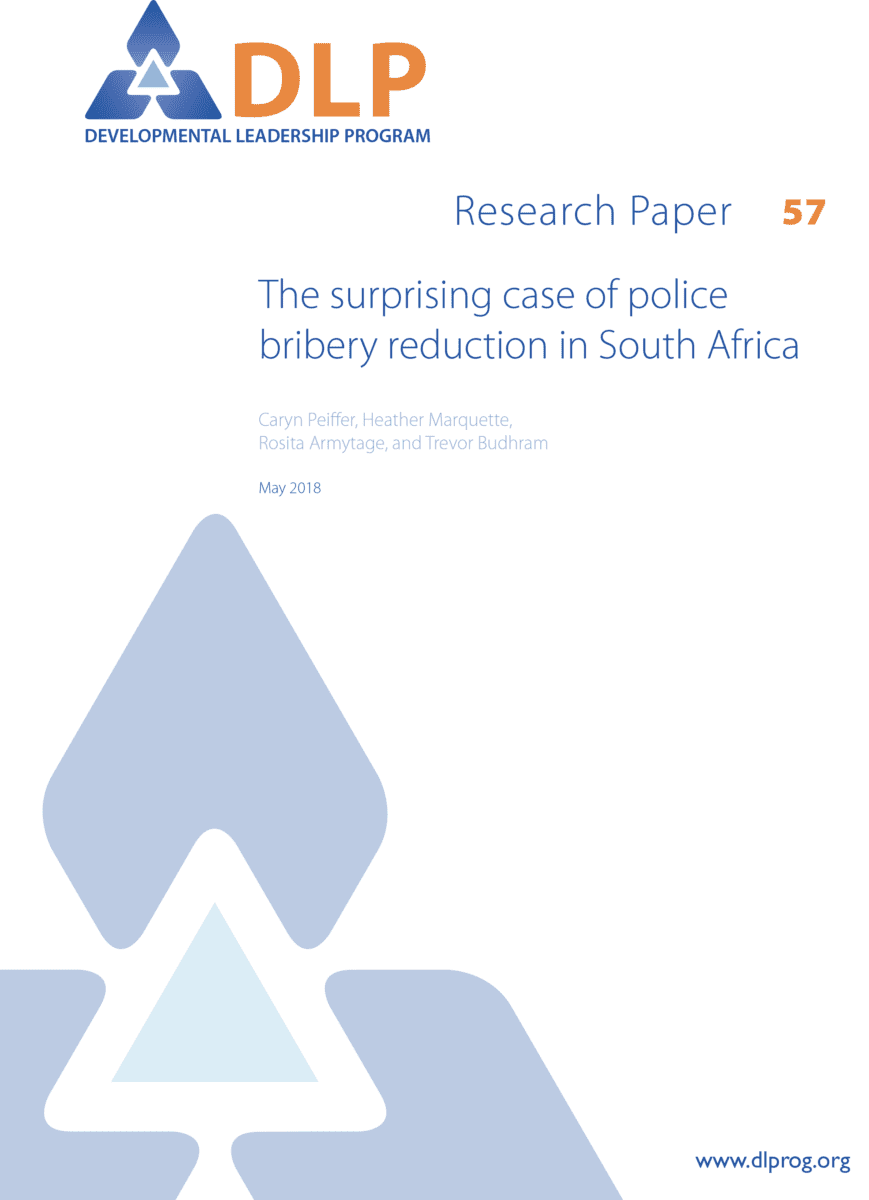This case study examines police-related bribery in Limpopo province, South Africa. It asks why such bribery reduced by almost 15% between 2011 and 2015, while the rate in the rest of the country reduced by on average less than 4%.
This bribery reduction in Limpopo’s police took place during the time that the national government led an unprecedented high-level anticorruption intervention in several provinces, but a specific intervention in Limpopo, unrelated to the police, impacted bribery levels dramatically in a relatively short period. The research suggests the police in Limpopo may have been especially reluctant to engage in bribery then because of uncertainty as to whether they were also under investigation and because of the heightened anticorruption action. The bribery reduction in the police was likely an unanticipated ‘benign side effect’ of a separate intervention.
This case shows that certain types of disruption may reduce bribery patterns, but only for a relatively short time. For longer-term impact, disruption strategies likely need to be continually inventive, and/or to be driven by strong leadership that will continually disrupt corruption patterns.
The research also highlights how new insights can emerge from anticorruption research that focuses on specific forms of corruption in a particular place, sector and time.
Characteristics specific to the police sector—such as a high degree of discretion, peer solidarity and regular contact with criminals—can make fighting entrenched corruption particularly difficult. While the long-term sustainability of the impact of this unusual intervention is questionable, the case teaches a wider lesson: a disruptive event can counteract sector-specific factors that likely enable entrenched patterns of corruption, and this can happen more quickly than expected.












